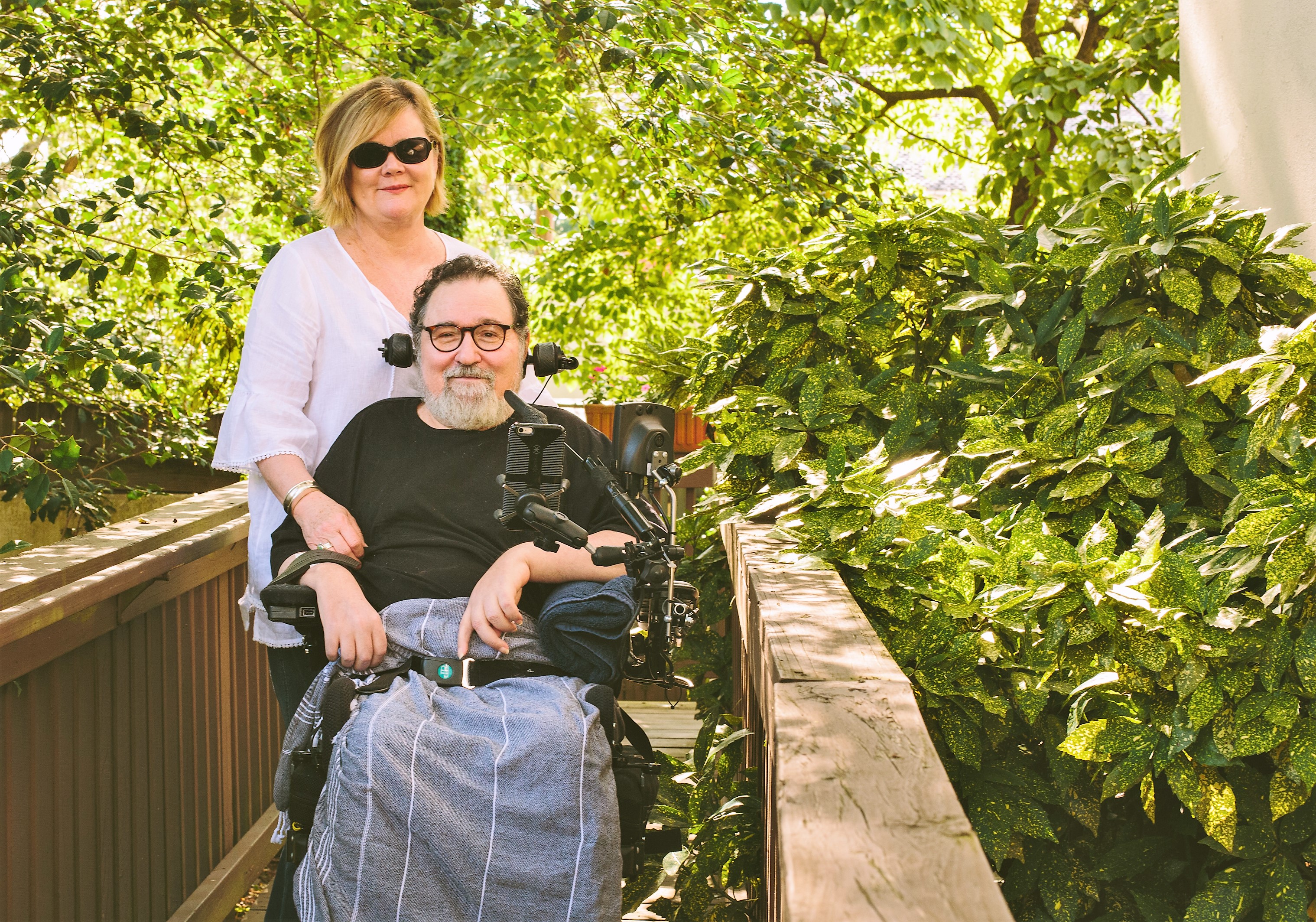AARP Hearing Center

Cynthia from Richmond, Virginia selflessly gave up her career and livelihood to become a full-time caregiver to her husband, Jim, who has multiple sclerosis (MS), is a quadriplegic and only has mobility with his head. As her husband’s condition progressed, Jim became physically dependent and needed greater assistance to take care of his needs. Cynthia and Jim looked into hiring a caregiver, but with limited finances, the cost was too great. This was when Cynthia decided to put her career aside to become his primary caregiver.
Across Virginia, family caregivers assist their parents, spouses, and other loved ones so they can remain at home and out of costly taxpayer-funded nursing homes. Caregivers selflessly take on responsibilities that can be emotionally, physically, and financially challenging. Virginia alone has over one million family caregivers who make an economic contribution of over 11 billion a year.
Cynthia’s caregiving duties include, but are not limited to, helping Jim in and out of bed and into his wheelchair, bathing, dressing, preparing meals, feeding, managing finances, taking him to doctor’s appointments, giving him his medication—all on top of her regular home chores. Because of Jim’s disability, she is constantly on guard, which takes an emotional toll on her. It’s also very physically taxing. In her role as a full-time caregiver, she has found it harder to find time to take care of herself, feels burnout, and experiences the isolation many caregivers feel.
By giving up her career, she has lost her source of income and is no longer able to save for retirement. She also worries about not knowing who will care for her if she is ever in need. Unfortunately, family caregivers do not receive financial support from the state, even though they save the government thousands of dollars by keeping loved ones “out of the system.” Cynthia said, “An income tax credit would be helpful. Caregivers need incentives to keep their family members at home.” In Virginia, caregivers provide 956 million hours of unpaid family care; in Cynthia’s case, she provides over 100 hours of unpaid care per week.
Major modifications were needed to be made to their home to make it livable for Jim. Since most of the expenses were not covered by insurance, they had to pay out of pocket. They installed a 50-foot handicap ramp and widened the doors to make the home wheelchair accessible, purchased medical equipment, and bought a van for the wheelchair. Technology is very helpful. To help Jim have some independence at home, they installed voice-activated lights and door locks and cameras so Cynthia can keep tabs on Jim when she is out of the house. Cynthia created a device that holds his cellphone and stylus clamped it to his wheelchair, allowing Jim to operate his iPhone through the help of the stylus that he holds his mouth. These modifications have not only helped Jim, but they also give Cynthia peace of mind that Jim can stay connected when she is out running errands.
Becoming a caregiver has not been easy, but Cynthia would not have it any other way. To help cope with the difficulties of caregiving, she’s needed to be resourceful and built a network of family and friends to help with small things around the home. She and Jim manage to have a very robust social life thanks to the extra effort on both their parts to keep active.
Aside from the obvious; they love each other, Cynthia proudly states, “Jim’s amazingly positive attitude also helps make caregiving for him easier.”
Your Story Matters. Every day, you deliver medicine, meals, and love. Share your family caregiving story with AARP Virginia at VAAARP@aarp.org so we can deliver for you — fighting for more support, help at home, workplace flexibility, training, relief, and much more.
Photo Credit: Becki Stenger































































